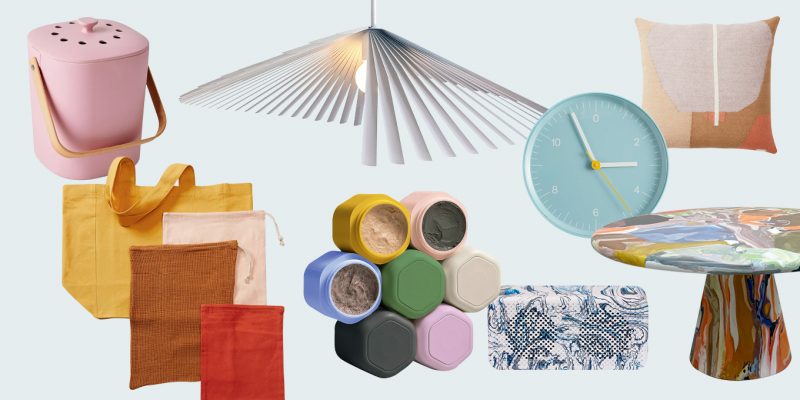ELLE Extra
What Is Fast Fashion and Why Temu Is Not Fast Fashion
The rapid rise of Boston-based online marketplace Temu has invited erroneous comparisons to fast fashion. But the company could not be more different.
by : Contributor Content- Apr 6th, 2023

Temu
Featured story by: Retail Insights
Fast fashion refers to a business model in the fashion industry that involves quickly producing and selling low-cost clothing items that are inspired by the latest fashion trends. These clothing items are typically made with cheap materials and labour, and many consumers wear them only a few times before the garments are disposed of or replaced with new items.
Fast-fashion brands operate on a rapid production cycle that involves releasing new clothing collections every few weeks rather than adhering to traditional fashion industry schedules that release collections seasonally. This allows them to quickly capitalize on new trends and produce clothing items at a low cost.
In recent years, fast fashion has gotten even faster with the rise of online ultra-fast fashion retailers like Shein, which reportedly releases thousands of designs A DAY in a “test-and-repeat” model that is characteristic of the industry.
The rapid rise of Boston-based online marketplace Temu, which surpassed Shein in U.S. app downloads this year, has invited numerous comparisons to the latter, chiefly because both companies offer low-priced products. However, the two companies could not be more different.
Is Temu fast fashion?
One of the most common questions about Temu is whether it’s a fast-fashion company. The answer is no. Temu operates an online marketplace featuring more than 25 major merchandise categories, with clothing being just one of them. In contrast, fast-fashion retailers like Zara, H&M and Shein engage in the production of goods, collaborating with their factories to swiftly manufacture clothing items intended for direct sale to consumers.
Temu cannot be categorized as a fast-fashion company since it does not engage in the production of goods. Instead, Temu uses a Next-Gen Manufacturing model that allows it to match demand and supply more effectively, leading to cost savings that are passed on to consumers.
How are Temu’s prices so low?
Temu achieves low prices on its products through its Next-Gen Manufacturing model that improves the matching of demand and supply. This leads to less waste and to cost savings that are passed on to consumers at lower prices without compromising the quality of the products.
Temu’s Next-Gen Manufacturing model provides an alternative to the wasteful fast-fashion business by ensuring that its suppliers produce merchandise that is in demand by consumers, leading to less wasteful manufacturing and improving the environmental footprint of manufacturing and retail.
Temu’s Next-Gen Manufacturing explained
Temu’s Next-Gen Manufacturing model is at the core of its business strategy. The model uses Temu’s online marketplace to connect consumers directly with manufacturers, enabling suppliers to produce merchandise that is in demand. This approach helps reduce waste and costs, allowing Temu to offer quality products at a lower price without compromising the environment.
Temu’s Next-Gen Manufacturing model channels consumer insights directly to manufacturers, resulting in more targeted, consumer-driven production that generates higher sales and less waste. The cost savings are passed on to consumers in the form of lower prices, while the direct-to-consumer model reduces markups charged by middlemen.
Temu’s Next-Gen Manufacturing model provides an alternative to the traditional wasteful manufacturing practice of “spray and pray.” By ensuring that suppliers produce merchandise that is in demand by consumers, Temu’s Next-Gen Manufacturing enables less wasteful manufacturing and improves the environmental footprint of manufacturing and retail.
Temu’s commitment to sustainability
Temu’s commitment to sustainability goes beyond its Next-Gen Manufacturing model. The company has a strict vetting process for all third-party sellers in terms of quality, and sellers who violate Temu’s policies can be permanently banned from the platform.
Furthermore, Temu’s commitment to sustainability extends to its packaging practices. The company encourages consumers to practise mindful consumption and to combine small purchases into larger orders to reduce the number of trips and environmental footprint.
Temu’s popularity is a testament to the growing demand for sustainable, ethical and eco-friendly shopping options. The company has received positive ratings on review sites like Sitejabber and the Better Business Bureau, indicating that consumers appreciate its innovative approach to online marketplaces.
In conclusion, Temu is not a fast-fashion company, and its Next-Gen Manufacturing model offers an innovative alternative to the wasteful practices of traditional manufacturing. By using Temu, consumers can shop without compromising quality or their values, making it a great choice for those looking for quality yet affordable merchandise.
KO Media newsroom and editorial staff were not involved in the creation of this content.
Newsletter
Join our mailing list for the latest and biggest in fashion trends, beauty, culture and celebrity.
Read Next

Fashion
Reitmans and The Birds Papaya Just Dropped The Dreamiest Spring Collection
Welcome to Sarah's Playhouse.
by : Melissa Fejtek- Apr 22nd, 2024

Decor
11 Zero Waste Decor Picks To Elevate Your Living Space
These brands are transforming waste materials into stylish products for your home.
by : Maca Atencio- Apr 22nd, 2024

Beauty
Tested and Approved: A Skin Saviour That Works While You Sleep
Wake up with your glowiest skin yet—even if you didn’t clock eight hours.
by : ELLE Canada- Apr 11th, 2024




